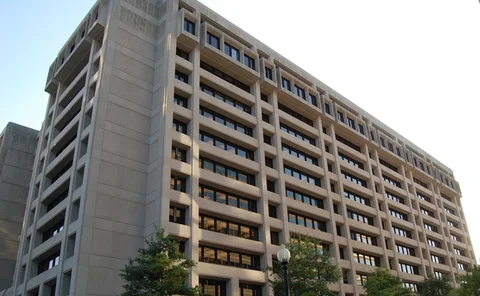Macroeconomics
Fischer: improve estimates of long-run equilibrium rate
Fed vice-chair speaks at conference honouring US economist Michael Woodford; stresses need for "faster potential growth" as US nears full employment
Iran must contain liquidity growth to safeguard inflation success, IMF’s Lipton says
Speaking at the Iranian central bank, David Lipton discusses how inflation can be anchored in single digits, after steadily declining in past year
IMF issues stark warning to UK on EU exit
Bank of England could find itself battling market dislocation and “substantial” economic slowdown if UK votes to leave EU, IMF warns; Christine Lagarde dismisses accusations of political meddling
Spanish paper explores low TFP growth during expansion
Working paper notes total factor productivity fell between 1995 and 2007 despite solid growth rates in the economy; highlights misallocation of production factors within industry
Malaysian governor explores sustainable finance tools
Muhammad bin Ibrahim sees potential for asset class backed by carbon credit-based solutions but structured using Islamic finance principles
Borio: Pluralism may not be answer to weakness in international system
Claudio Borio sees the “main problem” in the international monetary and financial system as the lack of an effective anchor, and is not sure greater pluralism addresses this
Fed presidents get to grips with weaker productivity data
John Williams and Neel Kashkari discuss short- and long-term factors that could be depressing productivity growth; latest data reveals further slide in quarterly figures
Bundesbank's Dombret draws lessons from European CMU for Asia
As Europe constructs its capital markets union, it could offer relevant lessons for Asian economies as they look to finance infrastructure demand in the region, Bundesbank's Dombret says
Sub-Saharan African countries need more responsive policy – IMF staff
Some central banks “impeded” in pursuit of primary mandate; staff report discourages government and structural development financing
Poloz upbeat on US and Canadian productivity prospects
Bank of Canada governor explores evolution of international trade; it may have fallen, but there are still opportunities for productivity growth, Poloz says
BoJ survey reveals growing pessimism over economy
Share of respondents who expect conditions to worsen over coming year rises to over one-third, although most believe conditions have stayed the same over the past 12 months, and will do so again
IMF director calls for fiscal expansion in eurozone
Greek attempts to consolidate fiscal position by increasing top tax rates ‘simply not working’, director says
Italian deputy governor calls for fiscal expansion in eurozone
Some eurozone countries should follow fiscally expansionary policies, Bank of Italy deputy governor argues; policy so far has been “less expansionary” than other major economies
Norges Bank deputy pits Keynes against Hayek
Jon Nicolaisen says European countries may have invoked the lessons of Keynes without paying heed to the warnings of Hayek – both views are needed to avoid problems
IMF working paper assess fiscal councils
Research considers the efficacy of independent fiscal institutions in “taming the deficit bias” that emerged in the 1970s, as well as assessing their performance more recently
IMF urges action to prevent global economy ‘stalling’ and ease central bank burden
Maurice Obstfeld highlights risk of “widespread secular stagnation” as IMF publishes latest WEO; details fiscal and structural support needed to ease burden on monetary policy
Perceived long-term eurozone deflation risk unaffected by oil – paper
Between 2010 and 2012, perceived short-term deflation risk was “significantly” affected by oil prices, while medium-term risk was only affected between 2013 and 2015, research suggests
Lower real interest rates may harm productivity growth, researchers say
Lower real interest rates may reduce productivity growth rates, researchers say; Italy and Spain have suffered low or negative TFP growth during existence of euro
BoJ’s Funo calls for efforts to revive potential growth
Board member uses first speech to back continued expansionary policy, highlighting steps that could help raise Japan’s potential growth from current depressed levels
Villeroy de Galhau calls for eurozone finance minister
Banque de France governor calls for single eurozone finance minister to co-ordinate fiscal and structural policy; warns of dangers of “overburdening monetary policy”
Government approves final stage of Thai development plan
Bank of Thailand will promote electronic payments in latest phase of financial sector master plan; all phases to be completed by 2020
Capital flow measures needed before offshore krona auction, says Guðmundsson
If the currency auction goes to plan, inward flows could strengthen and the Central Bank of Iceland needs the tools to resist them, its governor says
BoE’s Forbes outlines new thinking on current account imbalances
Breaking current account into trade and financial components allows more detailed analysis of when a large imbalance is dangerous and what shocks could cause trouble
Inflation expectations well-anchored, Richmond Fed president says
Lacker tells audience at Banque de France he believes expectations are anchored, despite drop in inflation compensation; Villeroy de Galhau notes drop in market-based measures in eurozone






















